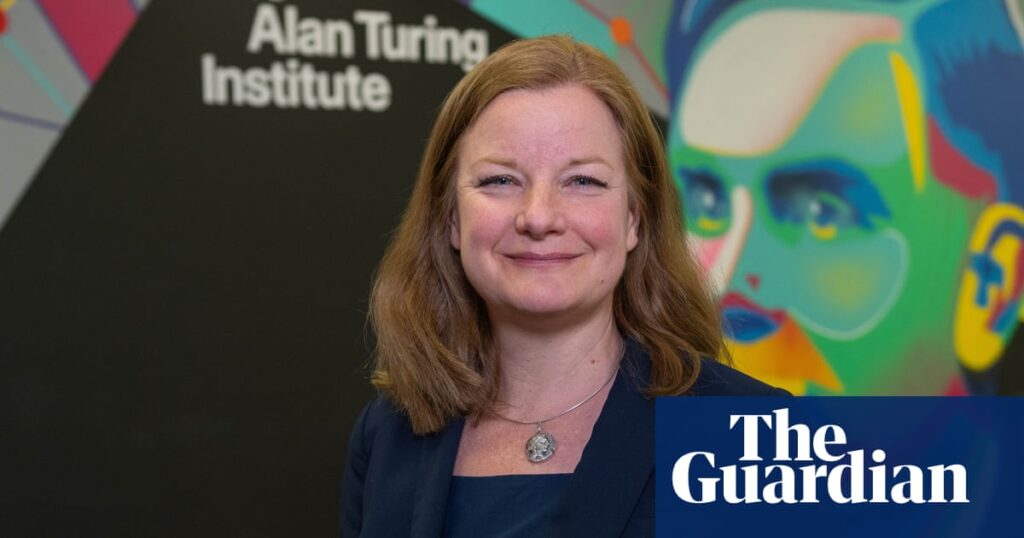The chief executive of the UK’s leading artificial intelligence institute is stepping down after a staff revolt and government calls for a strategic overhaul.
Jean Innes has led the Alan Turing Institute since 2023, but her position has come under pressure amid widespread discontent within the organisation and a demand from its biggest funder, the UK government, for a change in direction.
ATI said the search was already under way for a replacement for Innes, who held senior roles in the civil service and technology industry before her appointment.
Government sources pointed to a letter sent by the technology secretary, Peter Kyle, to ATI’s chair in July that demanded strategic change and indicated a need for new leadership.
In the letter, Kyle said the institute should switch its focus to defence and national security and urged “careful consideration” on having an appropriate executive team in place for such a move.
Innes said on Thursday: “It has been a great honour to lead the UK’s national institute for data science and artificial intelligence, implementing a new strategy and overseeing significant organisational transformation. With that work concluding, and a new chapter starting for the institute, now is the right time for new leadership and I am excited about what it will achieve.”
One source familiar with the internal debate at ATI said Innes’s departure indicated that Kyle’s letter had been taken seriously. However, the source added that changes at board level would be needed as well if ATI was to focus fully on defence and national security. The reply letter to Kyle from the ATI chair, Doug Gurr, a former Amazon executive, said it would focus on defence and national security but would still work on environment and health.
An ATI staff member, who said they had consulted on a range of concerns held by colleagues, said the resignation of Innes indicated governance at the institute was not working and that its leadership “needed to be held to account”. Many employees still want the institute to address “societal challenges” as well as focus on defence and security, said the staff member.
ATI has been beset by internal strife since last year as staff protested against changes, culminating in a group of employees filing a whistleblower complaint to the Charity Commission last month. Citing references to funding in Kyle’s letter, they said they feared £100m of government backing may be withdrawn, which “could lead to the institute’s collapse”. ATI is a registered charity but relies on the government for most of its funding.
The institute, which employs 440 people, had been undergoing a transformation programme before Kyle’s intervention, labelled Turing 2.0, in which it would focus on three key areas: health, the environment and defence and security. The overhaul has caused staff upheaval, with employees telling the board last year that ATI’s credibility was in “serious jeopardy”.
A redundancy process is also under way at the institute, which recently notified about 50 staff that their jobs were at risk. ATI has dropped projects related to online safety, tackling the housing crisis and reducing health inequality.
ATI, named after the British mathematician widely considered the father of modern computing, was founded in 2015 as a national institute for data science before adding AI to its remit in 2017.
Its goals include to “advance world-class research and apply it to national and global challenges”, as well as drive an “informed public conversation” on AI. Its five founding UK universities were Cambridge, Oxford, Edinburgh, University College London and Warwick, with its research work including teaming up with the Met Office to improve weather forecasting, creating cardiac “digital twins” to study heart disease, and improving air traffic control.

